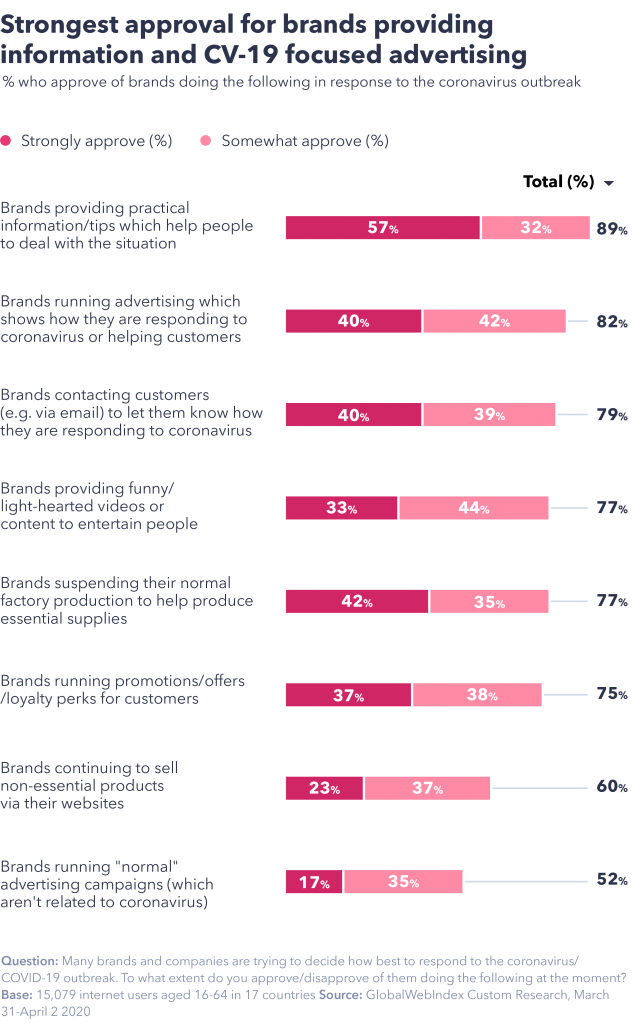In this era of information and misinformation, consumers are constantly looking for news, resources and brands they can trust. In between working from home and nodding at neighbors through face masks, it’s difficult to find the time to cull through your many news feeds, tweets and Facebook posts. (And, let’s face it, that distant relative who posts 10 cat memes on a daily basis might not be the most credible source.)
GlobalWebIndex, the respected market research and data company, recently launched a dedicated coronavirus hub to help brands effectively respond to the crisis. Two in three people report consuming news coverage at a rapid pace. In March the group released a study showing that two-thirds of people across the board expect social media to provide fact-checked content concerning Covid-19 and to filter out “fake news.” (Almost 75% of Gen Z consumers expected this.) But here’s where expectations meet reality: Only 14% believe that social media is a trustworthy source, even though that’s where they’re getting their information.
Trust, Information and Misinformation
In a time when 7 in 10 people follow coronavirus news on a daily basis, with a staggering 74% concerned about misinformation, who to trust during a pandemic is paramount. It’s also practically a full-time job.
Both GlobalWebIndex and the recently released Edelman Trust Barometer found that a majority of consumers view businesses as the leaders in the coronavirus crisis, as opposed to governments. This gives brands an incredible opportunity to show consumers that they can count on them, outside of their traditional marketing and advertising efforts during what we fondly remember as normal times.

The MMA has also created a comprehensive global Covid-19 Marketer Support Hub (#WeAreInThisTogether) featuring the latest tools for those in the industry, including tracking financial markets and consumer confidence and trends. They’ve even coined a new word: “cognitextual,” or the combination of cognition and context. Advertising not considered to be contextually relevant is two times less memorable, a poignant statistic given today’s uncertain times.
The Forbes CMO Network continues to churn out the latest news and articles impacting marketers, including campaigns by Hyundai, Lowes and Anheuser-Busch, among others.
We’re not in advertising mode right now. That’s the most important thing. We’re acting on a relevance and action kind of mode—Anheuser-Busch U.S. CMO Marcel Marcondes
Of course, not every agency can afford to be like Budweiser during this pandemic but we can all appreciate its message, now more than ever: Treat consumers with sensitivity and assurance—and the truth.
Previous Velocitize Covid-19 coverage





Join the conversation